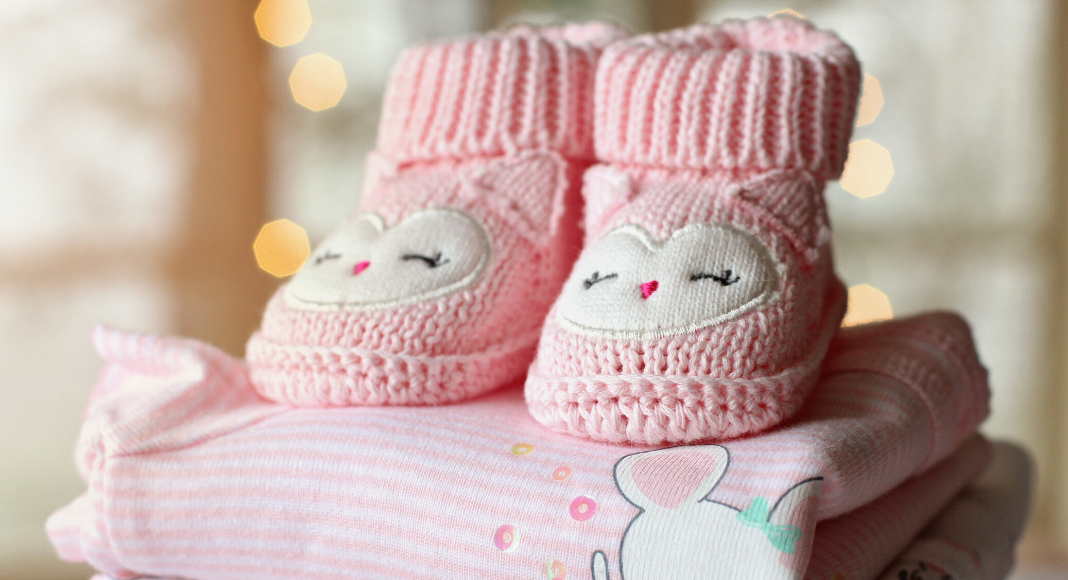 {Please note: this post contains sensitive and graphic content related to a miscarriage.}
{Please note: this post contains sensitive and graphic content related to a miscarriage.}
I’ve thought about writing this post for a long time. I’ve started and stopped on a few occasions but felt uneasy taking the text from the note section of my phone to a living, breathing post on the internet. The truth is, over the past three years, since my miscarriage, I have wanted other moms to know that I am always here to talk if they are going through this terrible situation.
I don’t want them to feel alone, searching online for information about what was happening to their body, to their mind, and their heart.
So, the truths written below are all things that I have shared with other moms before, albeit usually in a quiet coffee shop or over late-night text messages. These are all things that I wish I had known, and while I hope you never do, I leave them here for any mother (or father) who may ever need them.
The Comments
People will say the wrong things. Since speaking about a miscarriage is often seen as taboo, people have very little practice with what to say in response. Therefore, you may be met by some pretty insensitive comments. Although they are not intended as insensitive, things such as, “It wasn’t meant to be,” or, “Don’t worry–you’ll get pregnant again soon,” are some examples of the common statements I would receive. Sometimes hearing these things makes it more difficult to process the loss because you’re also handling the emotions that come with other individuals’ words. And while sharing this may not change what people say to you in response, it may help you better prepare to hear those comments.
The Grief
The waves of sadness may occur for years to come. I think about my angel baby practically every day. Certain days these thoughts come simply as a fleeting or happy thought, while other days are extremely challenging. I find the anniversary of the day I miscarried her and her due date to be some of the hardest. Other days catch me off-guard, such as when somebody shares a personal story regarding a miscarriage they experienced themselves or when I unpack the Christmas ornaments and find the one that was purchased in her memory. While there is much sadness in these moments, there’s also a sort of beauty in them. Experiencing sadness means that I have not forgotten. While it may be painful to think about the loss, I don’t ever want to forget my baby.
The Physical Miscarriage
The doctor may not prepare you for what happens to you physically. When I went to the emergency room because I was bleeding, and my hormone level test indicated it was clear I was losing the baby, nobody told me what would happen next. During the follow-up phone calls from my doctor over the next few days, I was asked how I was feeling but never told the specifics of how my body would react. Looking back, of course, it made sense that if my body had been growing a baby, I would eventually pass that baby, but for whatever reason (presumably a defense mechanism), the thought never crossed my mind.
So when it finally happened, and I was left staring at something that looked more like what I would see in a biology textbook, I was numb. How could this teeny-tiny thing possibly be my baby? And what could I possibly do with her? I went into a weird, out-of-body mama bear mode, pulled the “I love Daddy” bib that I had purchased the week before from my nesting stockpile, and carefully wrapped her in it. The bib now rests under some beautiful bushes.
The Partner’s Response
It’s a complicated space for the husbands or partners. I could tell that my husband was visibly upset about the loss. However, he was much more focused on me and the four days I spent in bed with my own sadness than on himself. And while many people checked in on me, I don’t recall many people ever really checking in on him. It is so important to acknowledge that the partner has experienced a loss, too. Even though they may not be dealing with the physical pain, the emotional and mental toll of losing a child and watching their partner go through all that comes with the loss can be a lot to carry.
The Pregnancy Obsession
You may find yourself obsessed with becoming pregnant. My husband and I were both shocked when I lost the first baby. I felt betrayed by my body. I was so angry that one of the biological things I was supposed to be able to do didn’t happen. And so, the obsession with proving to myself that I could successfully carry a baby began. I bought ovulation sticks and a basal body thermometer. I read about the signs of ovulation. I researched how long you should wait after a miscarriage to try to get pregnant again. There were so many varying opinions–was it one cycle, two cycles, or three?
The questions were never-ending, and my research was relentless. Luckily, our second pregnancy happened rather quickly. Our rainbow baby was born only three months after the due date of our first baby. Yet, I imagine if it had taken longer for me to get pregnant again, the obsession would have grown, and every negative pregnancy test I saw would’ve felt like a greater disappointment.
The Future Fear
You may be petrified that your next pregnancy will end in the same heartbreak. Every slight twinge, ache, and pain that I experienced gave me brutal anxiety. What was wrong? Was everything okay? When I made it past 12 weeks, I thought that the fear would subside, but it continued. From early on, my daughter was a very active mover and shaker. My aspiring tiny gymnast/soccer player was determined to be on her feet. She would often keep me up at night doing turns, kicks, and throwing elbows. While I was exhausted, I found great comfort in knowing that if she was moving around inside, chances were that she was healthy.
She wasn’t as active (probably from the exhaustion of the day’s fetus gymnastics meets and soccer tryouts). I was petrified. I would stay awake for hours on end, waiting to feel a kick or a flip. I would get up and walk around the apartment, desperate for a response. I believe this is something that any mother-to-be does, but I can only assume this was exacerbated by the loss that I had experienced.
Having a miscarriage is a lot of things. It is personal, it is emotional, it is exhausting, and it changes who you are. But one of the worst things about a miscarriage is the feeling that you have to go through it alone.
That is the exact reason for this post. If you are experiencing a miscarriage, and you are online frantically searching for answers–wondering what happens next and wondering what to do–I hope that the six things listed above will bring you some insight and comfort. Don’t forget–in those moments of grief and total emptiness, you are never, ever alone.

























My dear niece, you write beautifully. Thank you for sharing, and for all the support you’ve offered to me. Love, Cherie
Thank you <3